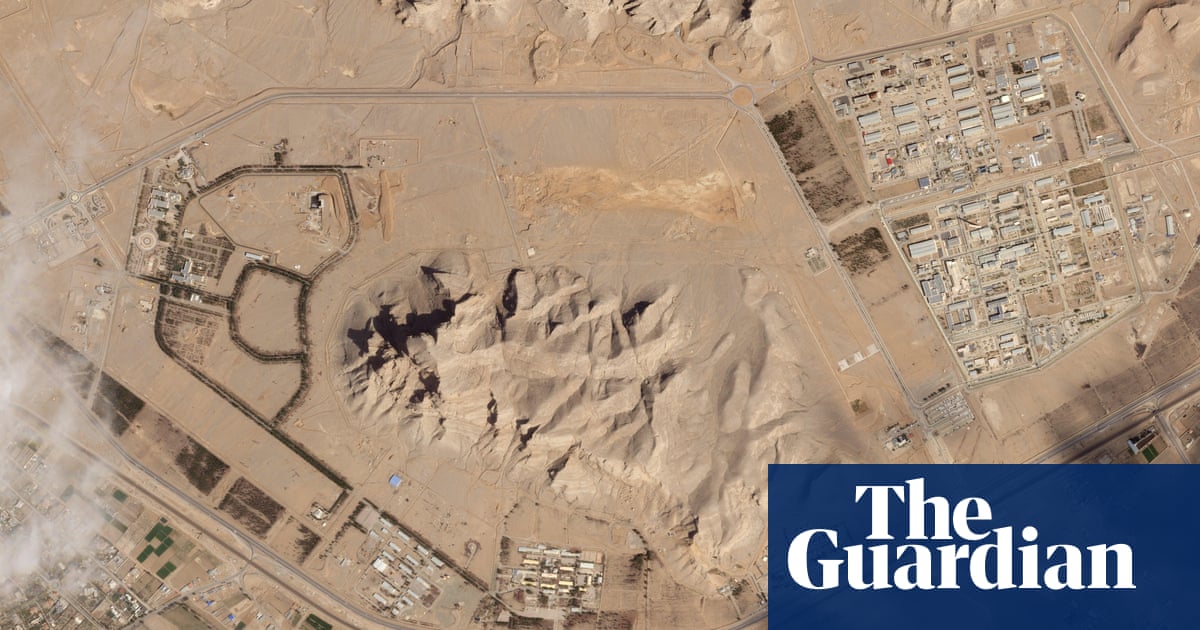In the aftermath of Iran’s unprecedented salvo of missiles and drones fired directly at Israel at the weekend, Benny Gantz, a centrist member of the Israeli war cabinet, said the country would respond “in the place, time and manner it chooses”.
That turned out to be explosions in the central Iranian city of Isfahan on Friday morning. Although no Israeli official has claimed responsibility for what seem to have been drone strikes on a military installation , Tehran, which had launched its attack after an airstrike on its consulate in Damascus, has downplayed the incident. The limited response may have, for now, staved off the threat of regional war.
Unclaimed drone attacks on a military site in Isfahan are unlikely to satisfy supporters or critics of Israel’s longtime leader, Benjamin Netanyahu, or restore the level of deterrence Israel enjoyed in the region before the Hamas attack of 7 October.
“Netanyahu, who has been threatening to attack Iran for 20 years, has realised a dream, or at least part thereof. The question is what about us, the people,” Amos Harel, the defence analyst and columnist for the leftwing Israeli daily Haaretz, wrote on Friday.
Meanwhile, Netanyahu’s ally and far-right national security minister, Itamar Ben-Gvir, reacted with just one word, “Feeble!”, in a post on X.
The Israeli prime minister may have achieved several short-term wins here. The muted Iranian reaction has soothed an anxious Israeli public before the week-long Passover holiday. Israel has also struck while it still has international diplomatic support for such an action, before the sense of urgency wanes and the world’s focus returns to the war in Gaza and its deepening famine.
By keeping allies in Washington abreast of plans for retaliation and not escalating the situation, Israel may have got the green light from the US and Egypt for its long-threatened ground offensive in Rafah, where 1.4 million Palestinian civilians have sought shelter. With internationally mediated ceasefire and hostage release talks at an impasse, a Rafah operation may be a way for Israel to increase pressure on Hamas at the negotiating table.
Netanyahu’s war cabinet had initially approved plans for a strike on Monday night inside Iranian territory, according to sources who spoke to Reuters, but held off at the last minute. A phone call with the US president, Joe Biden, had also held off war cabinet members, including Netanyahu’s main rival, Benny Gantz, who had wanted to take action while the Iranian assault was under way, the reports said.
Netanyahu’s overriding calculus remains his political survival – as long as Israel is mired in conflict, the opposition will struggle to force early elections. Clinging on to power as long as possible – and his coalition’s deeply unpopular attempts at a judicial overhaul – are his best chances of beating corruption charges, which he has always denied.
Large swathes of the electorate are still furious with the prime minister’s refusal to take responsibility for the intelligence and response failures during the 7 October Hamas attack. Yet survey results released on Friday showed that this chapter of back-and-forth with Iran has benefited Netanyahu’s Likud party: for the first time since the war in Gaza began, it has broken through the 20-seat threshold in the Knesset.
The Israeli leader is also recovering in the public’s opinion. In November, a survey by Bar Ilan University and the polling company iPanel found that just 4% of the Jewish Israeli public trusted him. Now, according to the market research agency Panel4All, 37% of Israelis say Netanyahu is better suited to be prime minister than his main rival, Benny Gantz, placing him just five percentage points behind Gantz’s 42%.
However, the bigger picture shows a multi-front war remains a strong possibility. Arguably that’s already the case, with tit-for-tat fighting with the powerful Iran-backed Hezbollah across the Blue Line in Lebanon worsening by the day and the West Bank at boiling point.
The Israel Defense Forces (IDF) are conducting raids against Hamas and Palestinian Islamic Jihad cells, as well as newly formed local brigades in Jenin and Nablus, which predate 7 October. And last weekend’s unprecedented settler attacks on Palestinian communities in the West Bank, triggered by the disappearance of a 14-year-old Israeli boy, suggest violence there is rising rapidly.
De facto settler militias in the West Bank, often unhindered or even helped by the IDF, are more organised than ever before and attacking in larger groups. They are also better armed, thanks to Ben-Gvir loosening restrictions on weapons permits in the aftermath of 7 October.
His office has approved 100,000 new gun licences over the last six months. Many of those appeared to be M-16s, automatic rifles that survivors said settlers used to kill and injure dozens of Palestinians who tried to stop them burning and destroying houses, cars, businesses and livestock last weekend.
Israel’s security establishment has made two previously unthinkable unforced errors in recent months: it failed to either foresee 7 October or assess the repercussions of the 1 April strike in Damascus.
The same people are in charge of what happens next. The direct hostilities between Iran and Israel appear to be over, but they are also the beginning of something new as the long-simmering shadow of war moves into the open. This has been a practice run for both sides. The next time could be very different.










